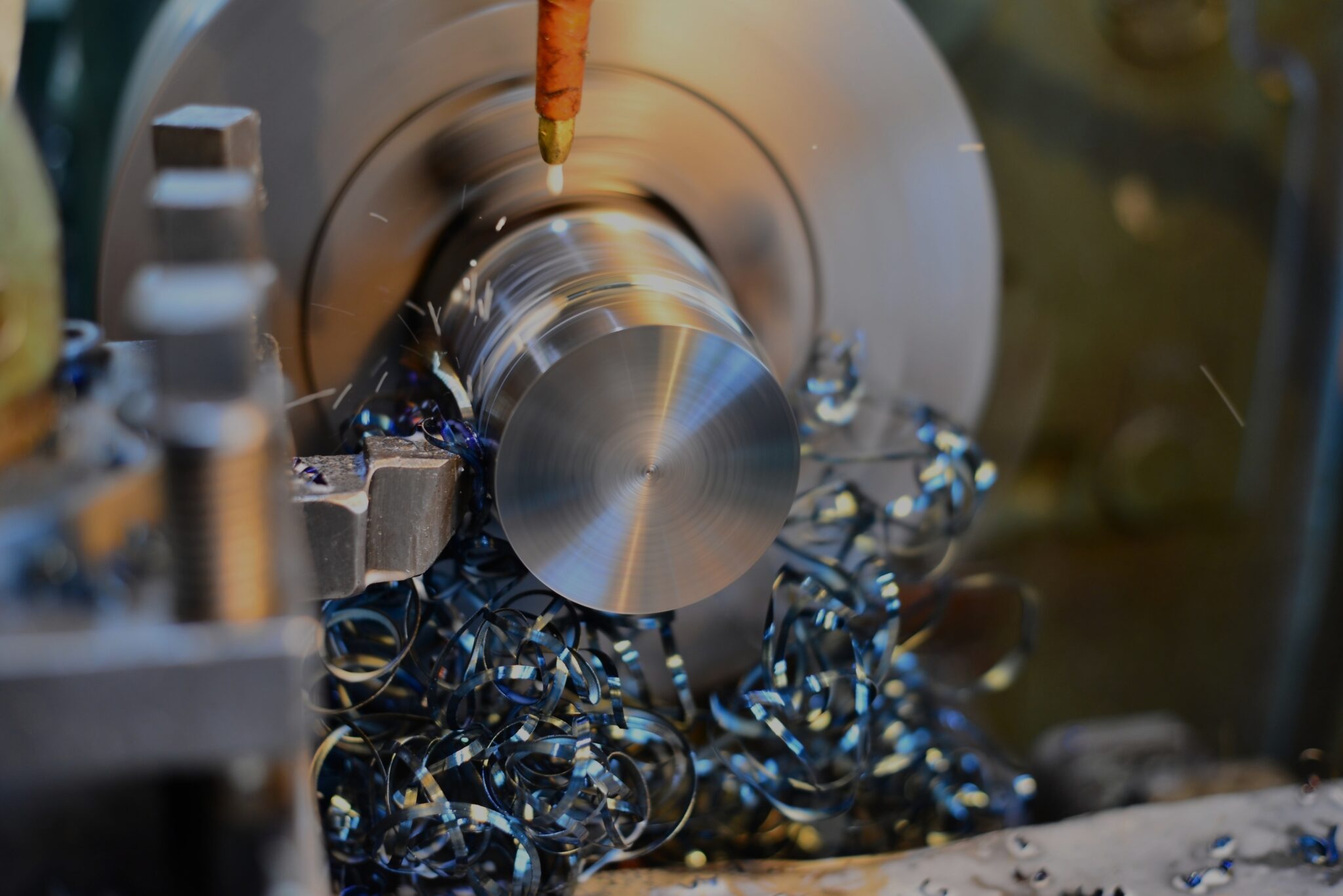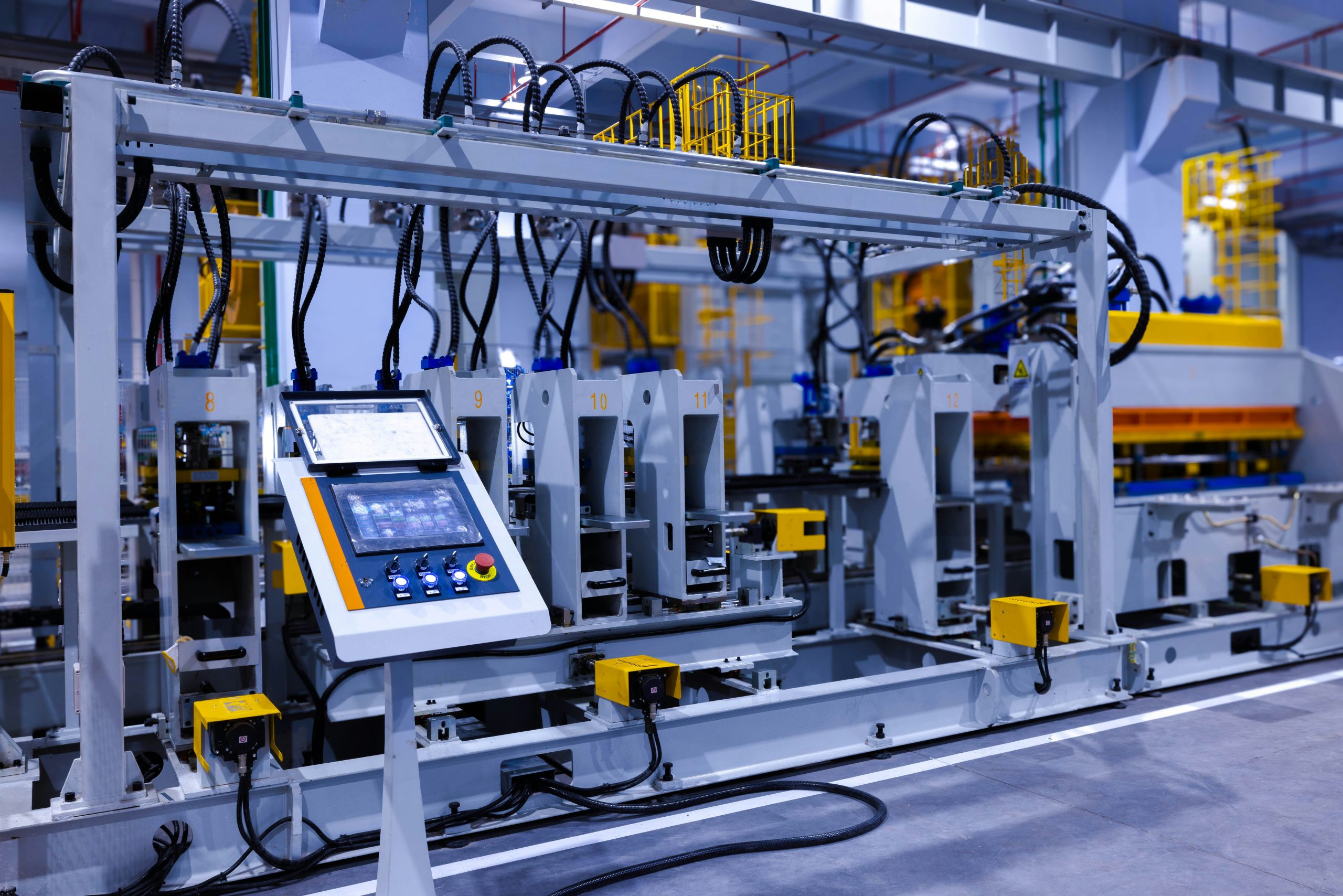How fast prototyping is revolutionizing manufacturing design
How CNC Machining Providers Improve Efficiency in Milling and Transforming Processes
CNC machining services play a pivotal role in boosting performance within milling and transforming procedures. By utilizing automation and exact control, these solutions lessen human mistake and warranty regular result. The capacity to handle complex geometries and maintain limited resistances streamlines production. The complete level of CNC innovation's effect goes beyond basic efficiency gains. There are much deeper effects and future fads that call for additional exploration.
The Basics of CNC Machining
CNC machining is a precise manufacturing procedure that uses computer-controlled makers to produce intricate parts and parts. This modern technology utilizes computer-aided design (CAD) software to develop in-depth designs, which are then translated right into maker instructions. The procedure commonly entails different operations such as milling, transforming, and boring, allowing manufacturers to attain high degrees of accuracy and repeatability.
CNC machines are outfitted with sophisticated tooling that can manipulate products like timber, steel, and plastic. They operate via a series of commands that determine motions, rates, and tool adjustments, lessening human error and improving production effectiveness.
The automation inherent in CNC machining permits for complex geometries and limited tolerances to be consistently created, making it a preferred option in industries needing accuracy, such as aerospace and automobile. Recognizing the fundamentals of CNC machining is essential for appreciating its duty in contemporary production processes.
Advantages of CNC Machining in Milling
CNC machining supplies considerable benefits in milling processes, especially regarding precision and precision. This modern technology not only improves manufacturing speed however additionally permits the development of intricate layouts that would be testing to attain manually. As a result, organizations can improve efficiency and broaden their abilities in production.
Precision and Accuracy
Attaining unmatched accuracy and accuracy in milling processes is a hallmark of sophisticated machining methods. CNC machining solutions make use of computer-controlled systems that diligently execute designs with minimal human intervention. This automation guarantees that each cut and contour is carried out to precise specifications, significantly reducing the risk of errors normally connected with hand-operated milling. The capacity to generate detailed geometries with limited resistances is a crucial benefit, enabling producers to satisfy strict high quality requirements. Additionally, CNC machines can maintain regular efficiency throughout several runs, guaranteeing uniformity in manufacturing. This level of precision not only boosts item high quality however also reduces material waste, bring about extra effective use resources. Overall, CNC machining solutions reinvent milling processes through their dedication to precision and detail.
Enhanced Production Rate
Speeding up manufacturing speed is just one of the standout advantages of contemporary machining services. CNC machining greatly reduces the moment needed for grating procedures by automating procedures and reducing manual treatment. Devices can run constantly, permitting raised outcome without sacrificing top quality. The capability to program numerous jobs into a solitary setup better enhances production, allowing manufacturers to full complex tasks in less time. Furthermore, CNC machines preserve high-speed reducing abilities, causing quicker material elimination and faster cycle times. This enhanced effectiveness translates to much shorter lead times, making it possible for business to respond quickly to market needs. In general, raised production rate through CNC machining not only enhances productivity yet also enhances affordable advantage in the manufacturing field.
Complicated Style Capabilities
The capability to develop elaborate layouts is a significant advantage of contemporary machining services. CNC machining permits for the production of complicated geometries that would certainly be difficult, otherwise impossible, to attain using typical methods. This capability stems from innovative shows and automated devices that exactly adhere to electronic plans, making certain precision and repeatability. Consequently, producers can create complex components with limited resistances, enhancing efficiency in different applications. Furthermore, the flexibility of CNC machines allows rapid modifications to create specs without substantial retooling, simplifying the manufacturing procedure. This flexibility not just improves imagination in style however also allows for efficient trial and error and innovation, offering organizations an affordable edge in the ever-evolving market.

Benefits of CNC Transforming Processes
CNC transforming processes supply significant benefits in manufacturing, specifically concerning accuracy and accuracy. These procedures allow for the production of highly outlined components with very little tolerances, making sure top quality in production. In addition, the efficiency of CNC turning adds to decreased preparations, enabling quicker distribution of finished products.
Precision and Accuracy
Precision and accuracy are characteristic characteristics of CNC transforming procedures, setting them apart in the production landscape. These processes use computer system numerical control to lead cutting tools with unparalleled exactness. This results in elements that fulfill strict requirements and tolerances, decreasing the chance of errors. CNC transforming allows for repeatable and regular production, making sure that each component is practically similar, which is essential in industries needing high criteria, such as aerospace and clinical devices - jig and fixture tooling. Additionally, advanced software application and innovation make it possible for real-time changes during machining, enhancing general top quality. By decreasing human mistake and taking full advantage of control over the production procedure, CNC transforming services provide premium accuracy and precision, making them an essential choice for modern manufacturing requirements
Minimized Lead Times
Minimized lead times are a considerable benefit of CNC transforming processes, originating from their capacity to optimize and automate article production. CNC turning machines operate with high efficiency, enabling fast configuration and implementation of several jobs without the demand for comprehensive hands-on intervention. This automation reduces downtime and accelerates the production procedure, enabling quicker turnaround for orders. Additionally, CNC modern technology improves consistency and lowers mistakes, which even more contributes to much faster production cycles. As an outcome, services can meet limited target dates and respond promptly to market needs. By leveraging CNC turning procedures, firms can improve operations, enhance resource appropriation, and eventually enhance their affordable side through reduced lead times.
Precision and Accuracy in Manufacturing
While manufacturing procedures have progressed considerably for many years, the importance of accuracy and accuracy continues to be critical. In CNC machining, these 2 elements are essential to producing high-grade elements that fulfill exact specs. The assimilation of sophisticated computer system technology enables thorough control over machining parameters, making sure that components are crafted with minimal variance from desired designs.
Precision in producing describes the repeatability of procedures, while accuracy signifies exactly how very closely a completed part lines up with its designated measurements. CNC equipments utilize sophisticated software program and devices that make it possible for manufacturers to accomplish both, significantly lowering the margin for mistake - jig and fixture tooling. This capability is particularly vital in sectors such as aerospace, auto, and clinical, where even minor inaccuracies can result in devastating failures

Minimizing Lead Times With CNC Innovation
CNC technology speeds up production timelines by simplifying the machining process. By automating jobs, CNC makers minimize hand-operated intervention, greatly minimizing the time needed for setup and procedure. This efficiency makes it possible for producers to react swiftly to market needs, fulfilling orders quicker than traditional machining techniques permit.
Furthermore, CNC technology uses rapid prototyping abilities, enabling quick models and adjustments based upon customer feedback. The precision of CNC machining makes certain that parts are created appropriately the very first time, lowering the likelihood of expensive mistakes and rework.
In addition, progressed organizing and programming capabilities optimize workflow, allowing multiple operations to run concurrently. This assimilation of modern technology not just shortens lead times but also enhances overall performance. Inevitably, the fostering of CNC machining solutions furnishes producers with the tools necessary to fulfill limited due dates while preserving premium requirements in production.
The Future of CNC Machining in Sector
As suppliers progressively embrace CNC technology to simplify procedures and decrease lead times, the future of CNC machining in sector shows up encouraging. Technologies such as man-made knowledge and artificial intelligence are established to reinvent the abilities of CNC machines, boosting their accuracy and versatility. These advancements will certainly help with real-time surveillance and anticipating maintenance, lessening downtime and optimizing manufacturing effectiveness.
Moreover, the combination of Internet of Points (IoT) technologies will certainly enable far better data collection and evaluation, allowing makers to make informed choices that further improve functional effectiveness. The rise of additive production along with CNC machining is expected to enhance traditional techniques, giving greater style adaptability and material effectiveness.
In addition, as sustainability becomes a concern, CNC machining is advancing to incorporate green practices, which will draw in ecologically aware customers. Overall, the future of CNC machining is defined by constant technology and adjustment, placing it as a cornerstone of contemporary production.
Regularly Asked Questions
What Materials Work With CNC Machining Services?
CNC machining services are compatible with different products, consisting of metals like steel, aluminum, and titanium, as well as plastics such as acrylic and polycarbonate. Wood and composites also fit CNC procedures for diverse applications.
Exactly How Does CNC Machining Contrast to Typical Machining Methods?
CNC machining offers higher automation, precision, and consistency contrasted to typical approaches. It reduces human error, enhances manufacturing rate, and enables for complicated styles, making it an exceptional option in modern-day production settings.
What Industries Advantage the Many From CNC Machining Solutions?
The aerospace, vehicle, clinical, and electronic devices industries benefit considerably from CNC machining services. These fields utilize speed, precision, and modification to improve product high quality while decreasing manufacturing expenses and time, eventually enhancing overall functional performance.
Can CNC Machines Deal With Complex Geometries and Layouts?
CNC makers are skilled at dealing with complex Your Domain Name geometries and layouts, enabling precision and elaborate detailing. Their innovative programs abilities enable suppliers to develop parts with high accuracy, conference diverse market requirements and improving item functionality.
What Is the Normal Price Range for CNC Machining Solutions?
The typical expense variety for CNC machining solutions varies commonly, usually falling in between $50 to $150 per hour, relying on factors such as material, intricacy, quantity, and the specific machining processes utilized.
CNC machining is a precise manufacturing process that makes use of computer-controlled machines to produce elaborate components and parts. CNC machining offers substantial benefits in milling procedures, specifically concerning precision and accuracy. CNC machining considerably lowers the time needed for milling processes by automating operations and reducing hands-on treatment. CNC modern technology increases production timelines by improving the machining process. As producers progressively embrace CNC innovation to enhance procedures and reduce lead times, the future of CNC machining in industry appears promising.